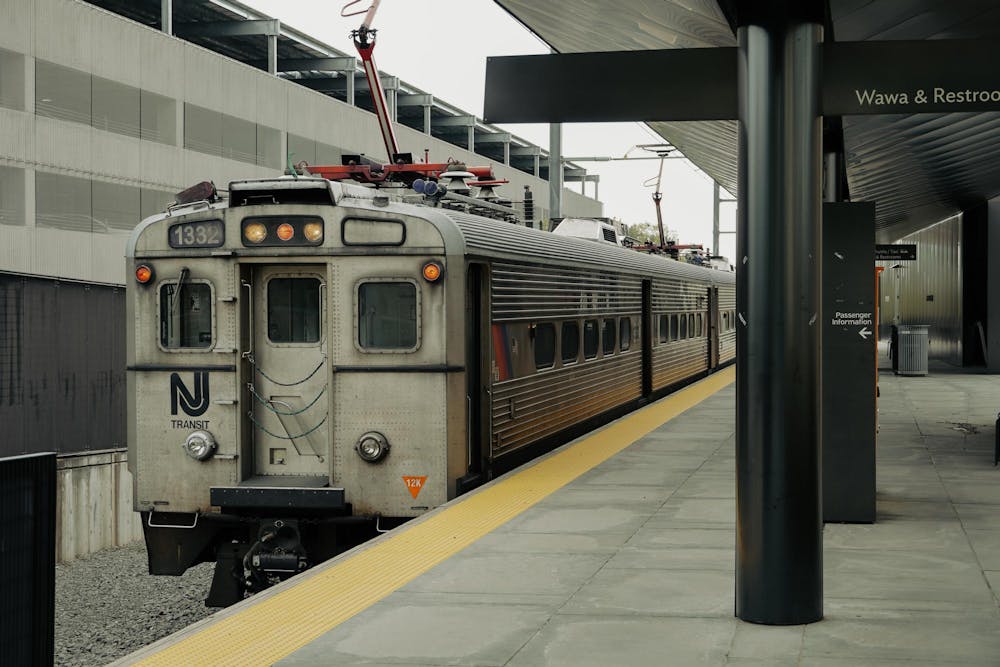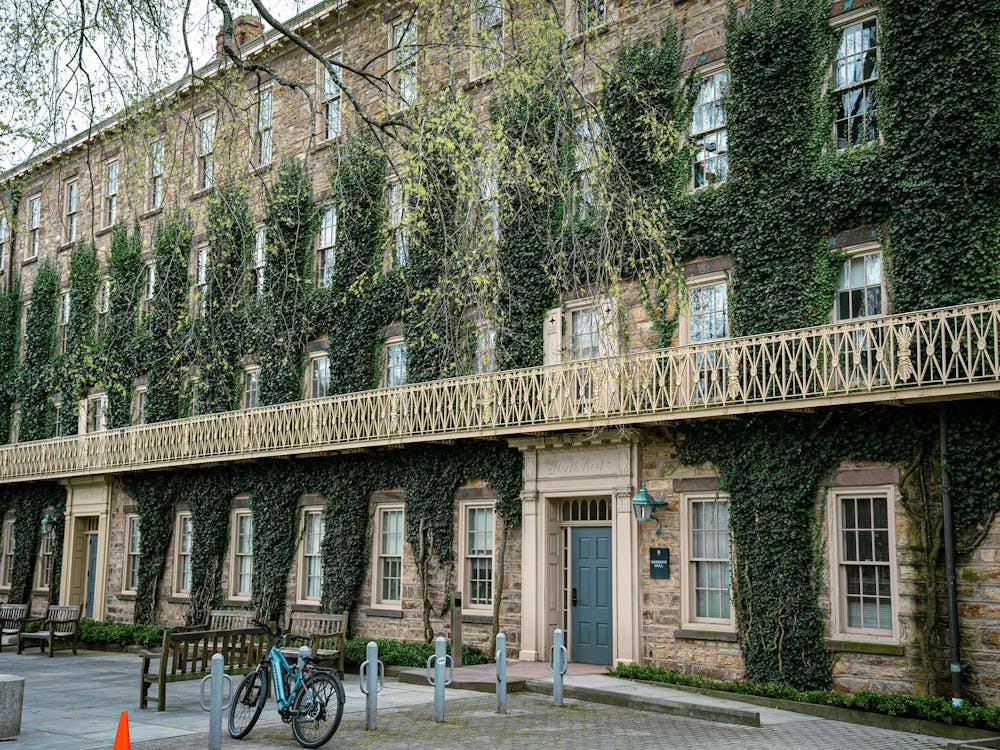I have something to admit: I can count on one hand the number of times I’ve been to New York since coming to Princeton in August. And I’d have a finger left over if I did. It’s not because I’m drowning in a pile of problem sets — I’m a Politics major — or because I don’t want to go to New York. It’s because NJ Transit’s price hikes and limited student discounts have made rail fare prices prohibitively expensive for students like me. And Princeton should fix that, in order to help undergraduates burst the Orange Bubble without nervously checking their bank account after the facts.
If you wanted to purchase a round-trip ticket to New York Penn Station from Princeton, it would cost you $40.80 — or $48 if your destination is Newark Liberty International Airport, despite being geographically closer. For one journey, that might not be an insurmountable cost. But, consider that Princeton students might need to fly in order to travel off-campus five times per academic year for breaks alone, and the price quickly becomes $240.
A $240 baseline doesn’t account for other trips students might take to New York City or Philadelphia, which provide invaluable experiences to undergraduates for leisure, educational purposes, or to visit family and friends. Although leaving Princeton’s isolated suburban setting is not enough on its own to pop the bubble, connecting to the broader world outside Princeton and thus gaining an understanding of the practical significance of our studies is a necessary first step to forming off-campus relationships and communities and engaging with real-world issues.
However, for many students on financial aid, the price is simply too much to justify regular non-essential travel to nearby cities. This creates a significant equity issue: Students who can afford to take trips to the city have access to more connections, more relationships, more engagement, and more opportunities as a result. Simultaneously, low-income and middle-class students can’t access those opportunities as much or at all.
When did NJ Transit get this expensive, anyway? After all, it didn’t always cost this much to get to New York: During Reunions last year, a round-trip ticket to Penn Station from Princeton Junction would have cost $32. However, after a recent price hike to keep the agency afloat, that round-trip cost has increased by $4.80. And with three percent annual price increases planned indefinitely, the cost is just going to keep going up — and Princeton students will be able to burst the Orange Bubble less and less.
It doesn’t have to be this way. Several major U.S. cities partner with local universities to make public transit accessible for students. At certain universities in Chicago and Philadelphia, students pay a transportation fee that gives them unlimited access to transit. For a student on full financial aid, of course, that fee can be covered by financial aid grants.
These programs work: At Swarthmore, for example, in the first month of the Philadelphia transportation program, students used public transportation nearly four times per month. Swarthmore students are more connected to and integrated with the city than ever before — allowing them to escape their suburban bubble.
In the model of peer universities and locales, Princeton and New Jersey must work together to make NJ Transit substantially more affordable for students. One possible solution would be to adopt a similar system to those in Chicago or Philadelphia, allowing students unlimited access to NJ Transit funded by a flat fee paid to the school. Crucially, for students on any financial aid, this fee should be subsidized by the University.
This solution would benefit both Princeton students — and the University as a result — and NJ Transit, which would receive a significant source of revenue from the University in exchange for the benefit to students. It’s unlikely, amid the agency’s budget shortfall, that the state would act alone to provide a student discount — so the University must partner with the agency to address both problems.
But this is a long-term solution, and one that is not guaranteed to be successful even if the University commits to lobbying for it. In the short term, and perhaps permanently, Princeton should act unilaterally for the benefit of its students. In the image of the Dining Points program, the University should extend a transit subsidy to undergraduates. By giving students 400 transit “points” — dollars, that is — per year, for example, Princeton would fund travel to and from the airport and allow undergraduates an additional three to four trips to New York without having to pay for tickets.
If the $2.3 million annual price tag for acting unilaterally would be too much, the University could introduce a supplementary fee — one that would be covered by financial aid for any eligible students — to cover that cost. Such a cost should not be a barrier to providing equitable access to public transportation.
By the time I graduate — if price increases follow their current three percent trajectory — round-trip transportation from Princeton to New York will cost at least $44.21. But it could, very easily, cost nothing. It’s past time that Princeton moved to expand access to regional public transit for undergraduates. After all, the University affirms that “commuting alternatives” are an important part of the Sustainability Action Plan, and graduate students already receive a transit subsidy to help lower NJ Transit costs. Why shouldn’t undergraduates receive similar benefits?

So, Princeton, put your money where your mouth is: Act unilaterally and immediately to support undergraduate students, and work with the state legislature in the long term to establish a more comprehensive U-Pass system that will benefit students, the University, and public transit across New Jersey.
Isaac Barsoum is a first-year intended Politics major from Charlotte, N.C. He believes that loving Princeton means finding ways it can become a safer, happier, more inclusive place. His column, “A Princeton for All,” runs every other Thursday. You can read his column here. You can reach him at itbarsoum[at]princeton.edu.
Correction: A previous version of this piece stated that NJ Transit had multiple recent price hikes. In fact, NJ Transit has only raised its prices once in the last decade, in 2024. The ‘Prince’ regrets this error.








